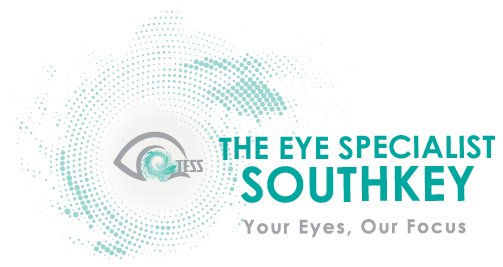ICL
(Implantable Contact Lens)
Harmoniously Correct Your Vision
ICLs are inserted between your natural lenses and iris to correct refractive errors.
Once implanted, ICLs are completely invisible to you and others. You will only notice an improvement in vision and quality of life.
20 MINUTE SURGERY
1 DAY RECOVERY
REVERSIBLE PROCEDURE
excellent vision quality
suitable for dry eyes
safe & comfortable
The Clear Choice for Better Vision
Before the surgery
You will need to undergo a suitability test to determine if you are a suitable candidate for refractive surgery.
You will need to undergo a suitability test to determine if you are a suitable candidate for refractive surgery.
during surgery
Step 1: Anaesthetic eyedrops are used to numb the eye
Step 2: The laser is used to remove the corneal skin.
Step 3: The laser reshapes the cornea
Step 4: Bandage contact lenses are placed to help in recovery
Post surgery
- Your eyes may be tearing and sensitive to light. (bring sunglasses)
- Your vision takes some time to adjust. You should be able to see clearly within a week
- You will need to come back for a post-surgery consultation.
How the Surgery Works?
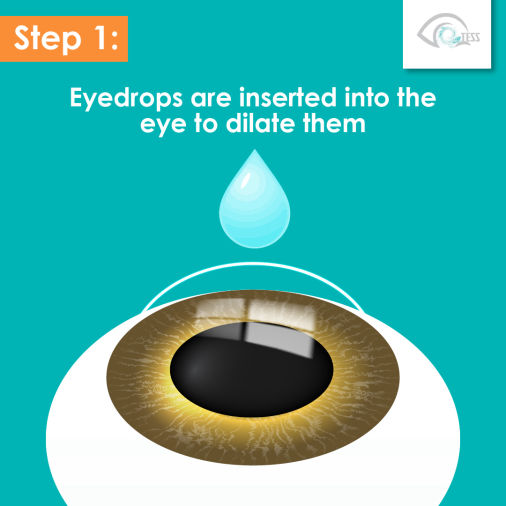
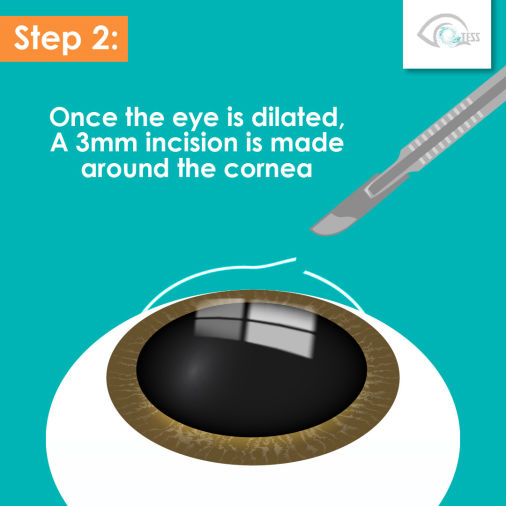
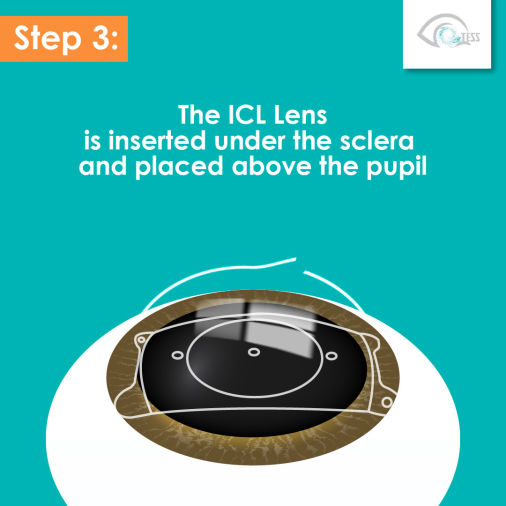
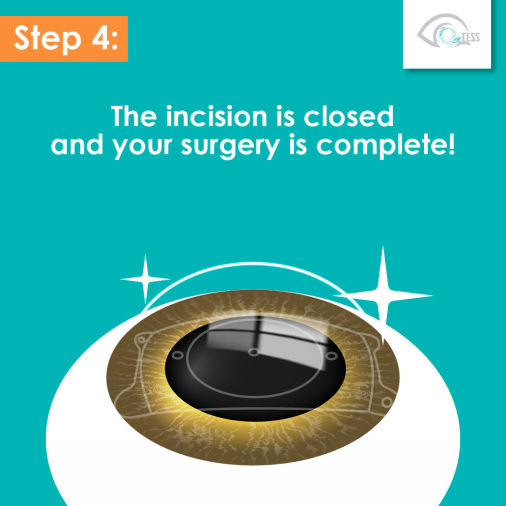
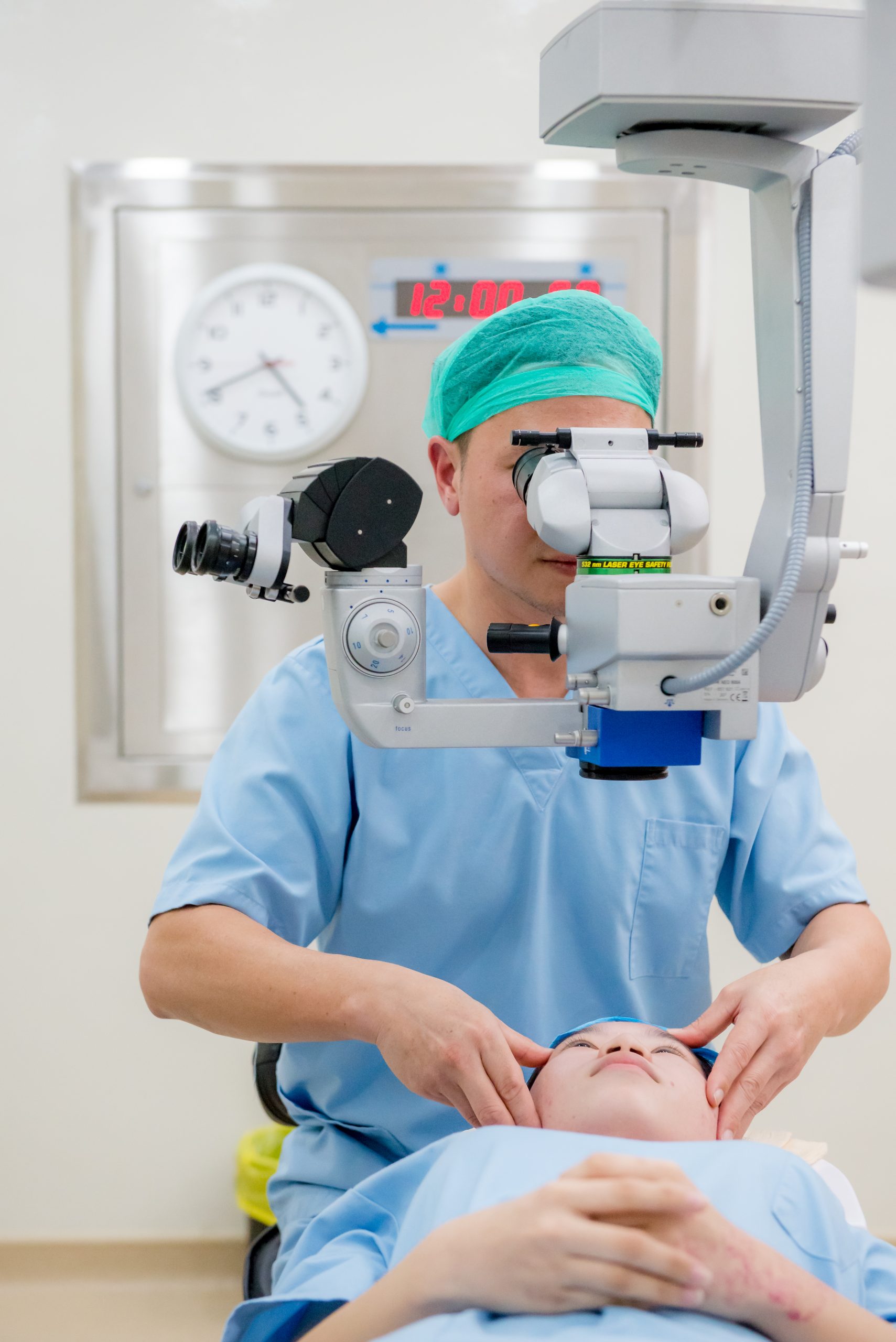

ARE YOU ELIGIBLE FOR THE SURGERY?
Am I suitable for ICL?
It is important to understand that not everyone is a suitable candidate for ICL. Some basic requirements include:
- Aged 21-45 years
- Stable vision with no change in refraction error
- High myopia up to -23.0D
- Astigmatism
- Those with thin corneas who are not good candidates for LASIK
WHAT TO EXPECT DURING YOUR SUITABILITY TEST
Step 1: Eye Dilation
Dilation drops relax your eye muscles and allow us to measure your eye prescription & evaluate your retina
Step 2: Suitability Test
- Diagnostic analysis of your cornea
- Measurement of your refractive error (eye power)
- Dry eyes evaluation
- Ocular health evaluation
Step 3: Consultation with Ophthalmologist
If you are considered a good candidate for TransPRK, the surgeon will provide you with information about the surgery procedure, as well as the potential risks and benefits.
It is important to feel comfortable and informed before making a decision, so don’t be afraid to ask any questions you may have.

Frequently Asked Questions
How long would the surgery take?
The ICL procedure will take approximately 2 hours.
We will first use an eye drop solution to dilate your eyes. The process of eye dilation will take one hour.
Only 20 minutes is needed for the surgery of each eye.
Is the ICL surgery painful?
No. You will be administered with a local anesthesia throughout the surgery. Thus, the procedure will be painless.
Who is suitable for ICL?
This is a suitable procedure for adults between the ages of 21 and 45 and near-sighted, with eye conditions such as nearsightedness, farsightedness, astigmatism, and thin corneos.
Will i be able to see after the surgery?
You will be able to gain improved and clearer vision within 24 hours after the surgery.
It will not be possible for you to drive a vehicle immediately after the procedure, mainly due to the sedation that is administered during the surgery.
Thus, it is recommended for you to get a friend or family member lo drive you home after the surgery.
Are ICLs animal-based?
Depending on the manufacturer, some ICLs are animal-based. At TESS, we choose non-animal based ICLs.
I am not suitable for LASIK, can I still go for ICL?
LASIK procedure uses a laser to permanently reshape your cornea. You may not be suitable for LASIK if your cornea is too thin or if you have severe dry eyes.
Your suitability for ICLs are based on different criterias compared to LASIK, so you may still be eligible for ICLs even though LASIK is not an option for you.
Do I need to go for a refraction test with an Optometrist?
ICLs are like glasses. Everybody has their own preference. A refraction test will help determine which combination gives you the sharpest and most comfortable vision.
Our ophthalmologist can recommend you to an Optometrist if needed.
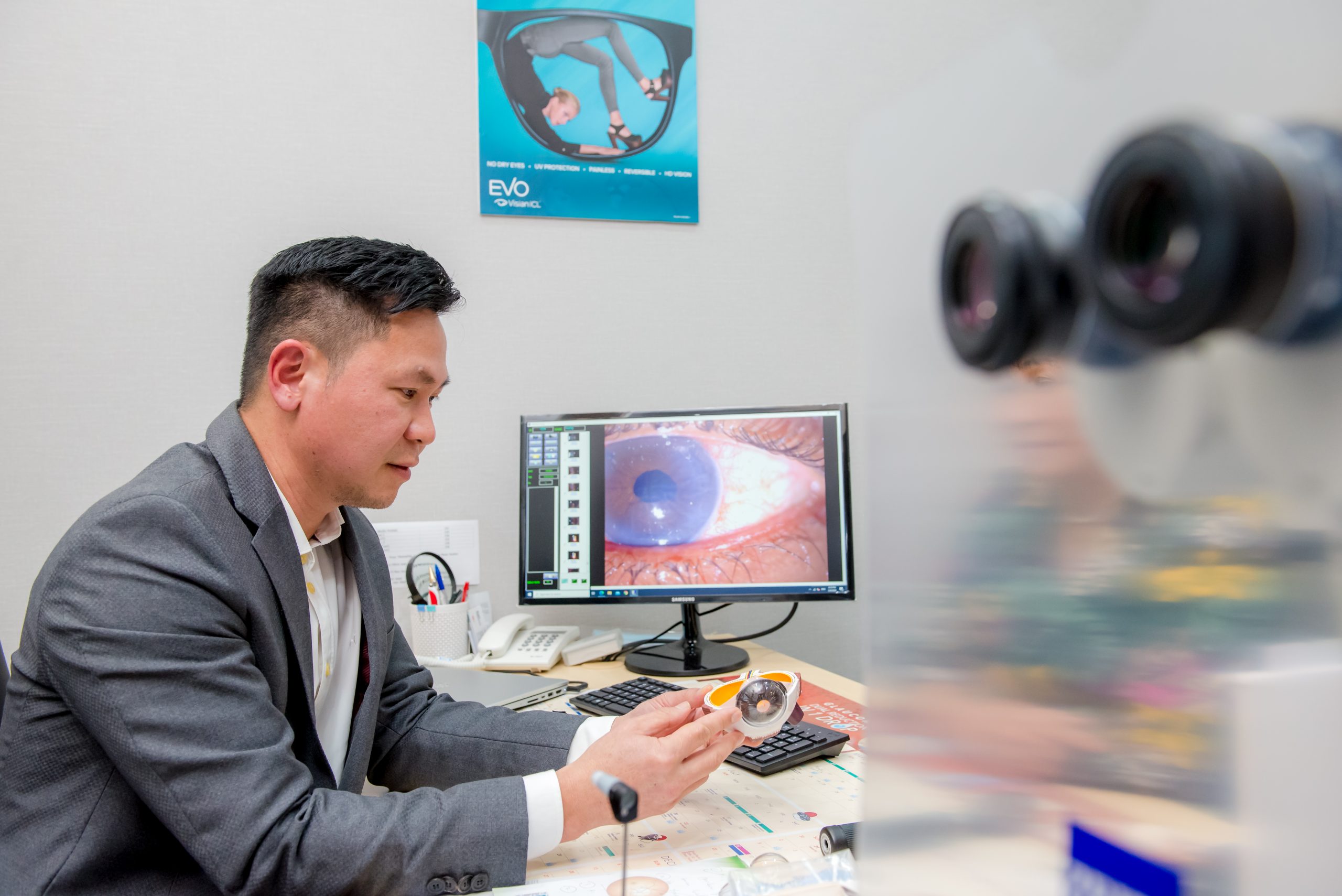

LASIK vs ICL
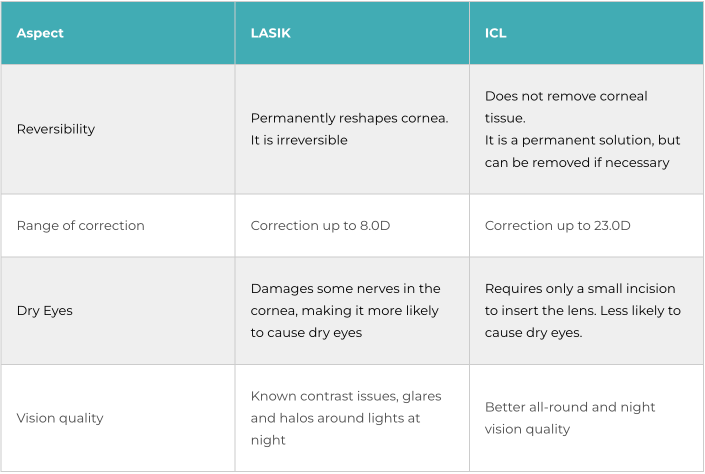
Patient Testimonials
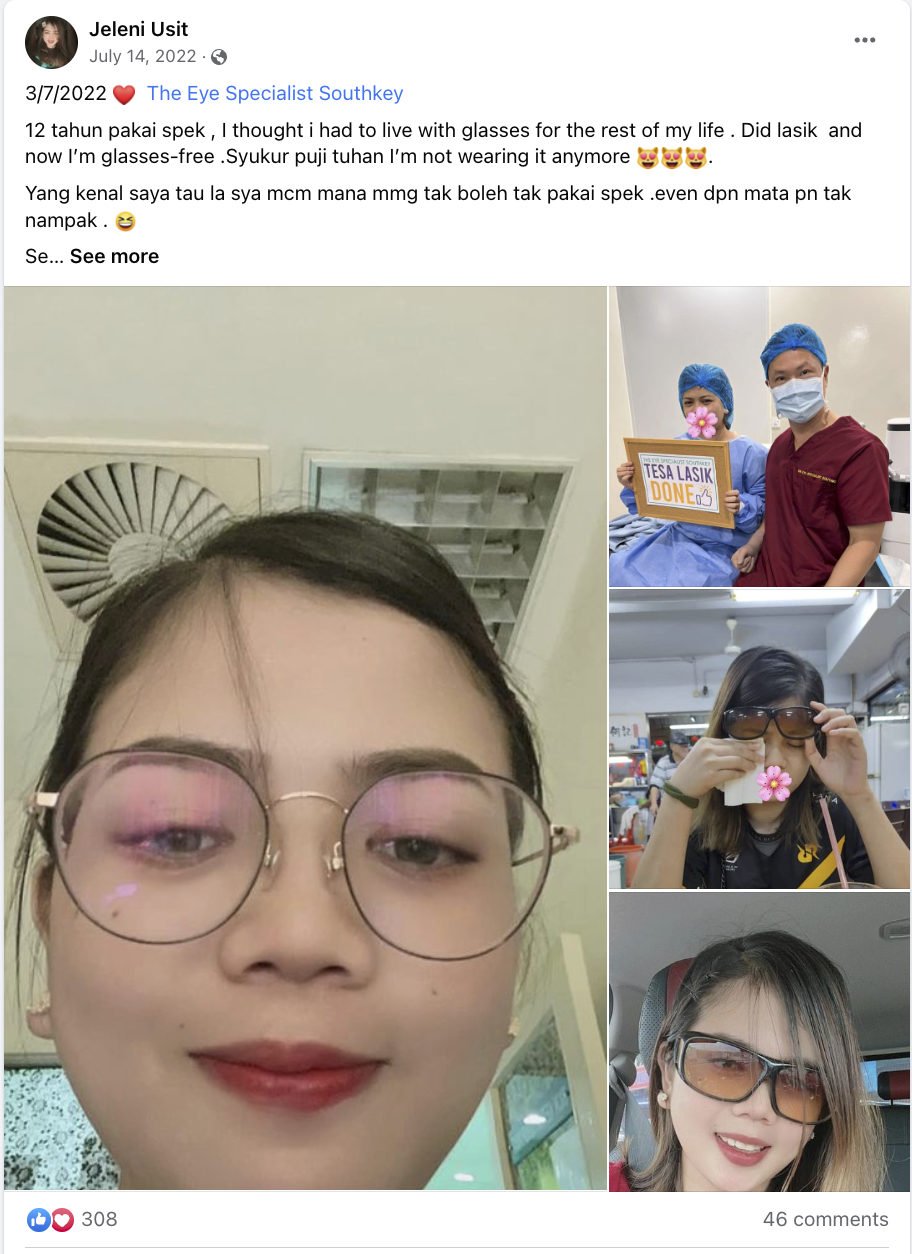
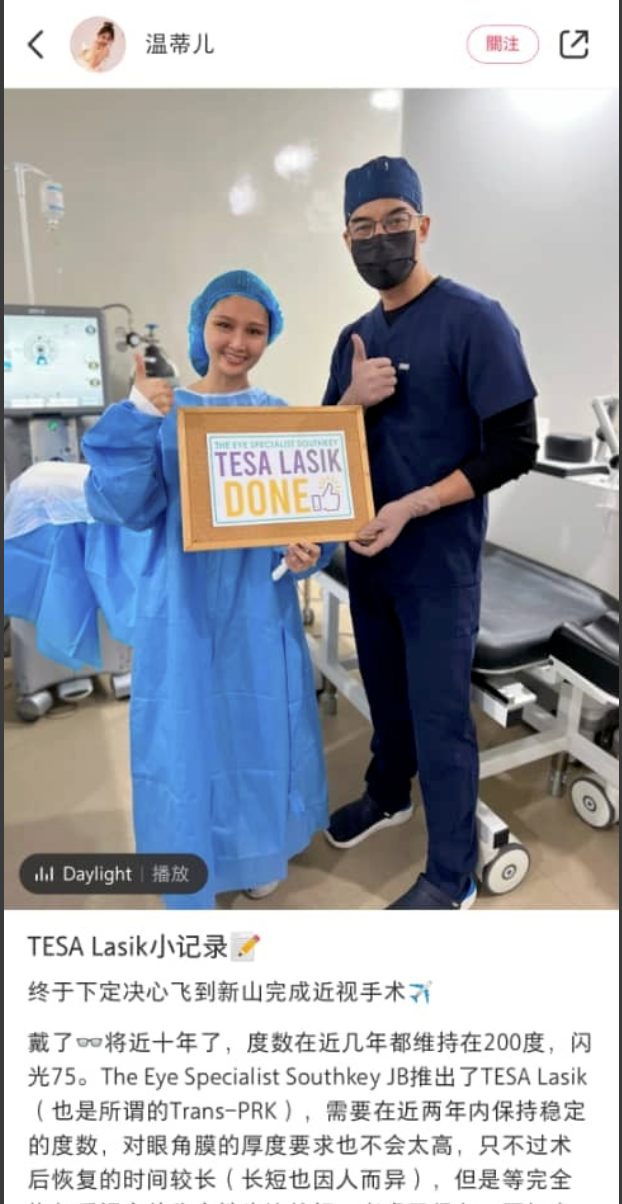
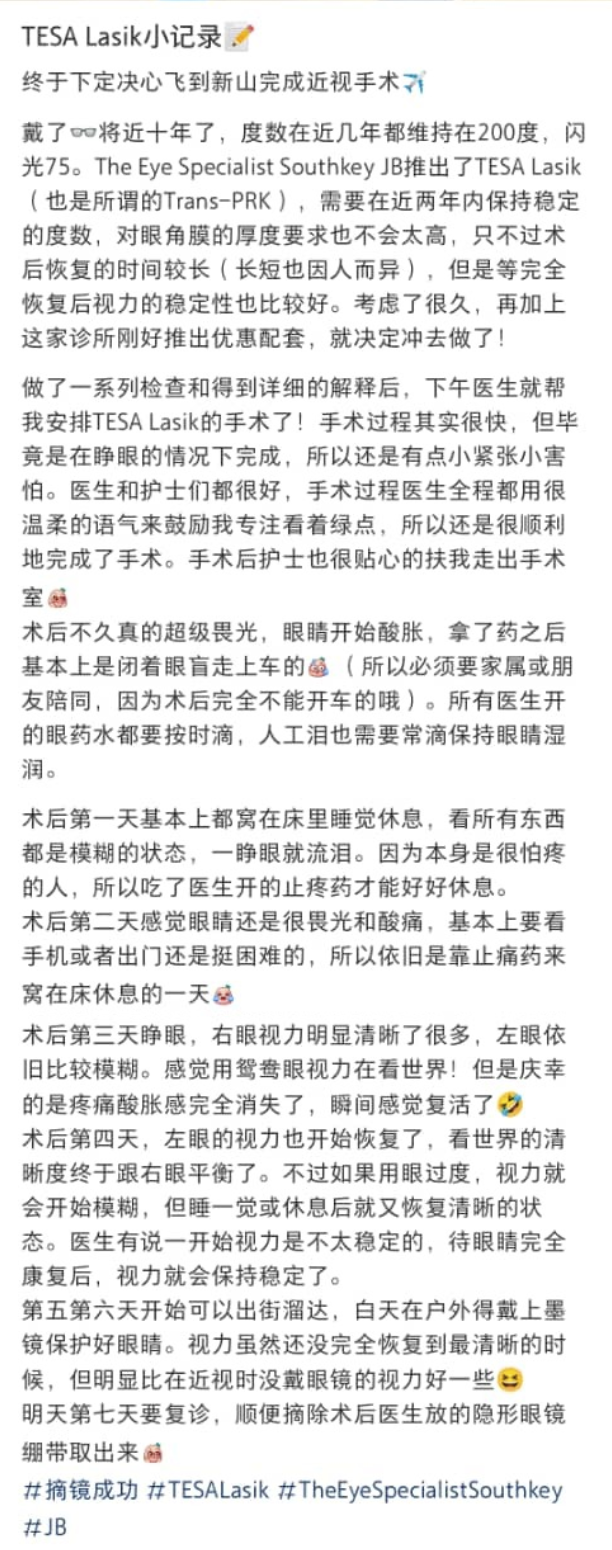
Book an Appointment
If you are experiencing symptoms of cataracts or have concerns about your vision, please schedule an appointment with our ophthalmology clinic today. Our team is here to help you see clearly and enjoy the best possible vision!
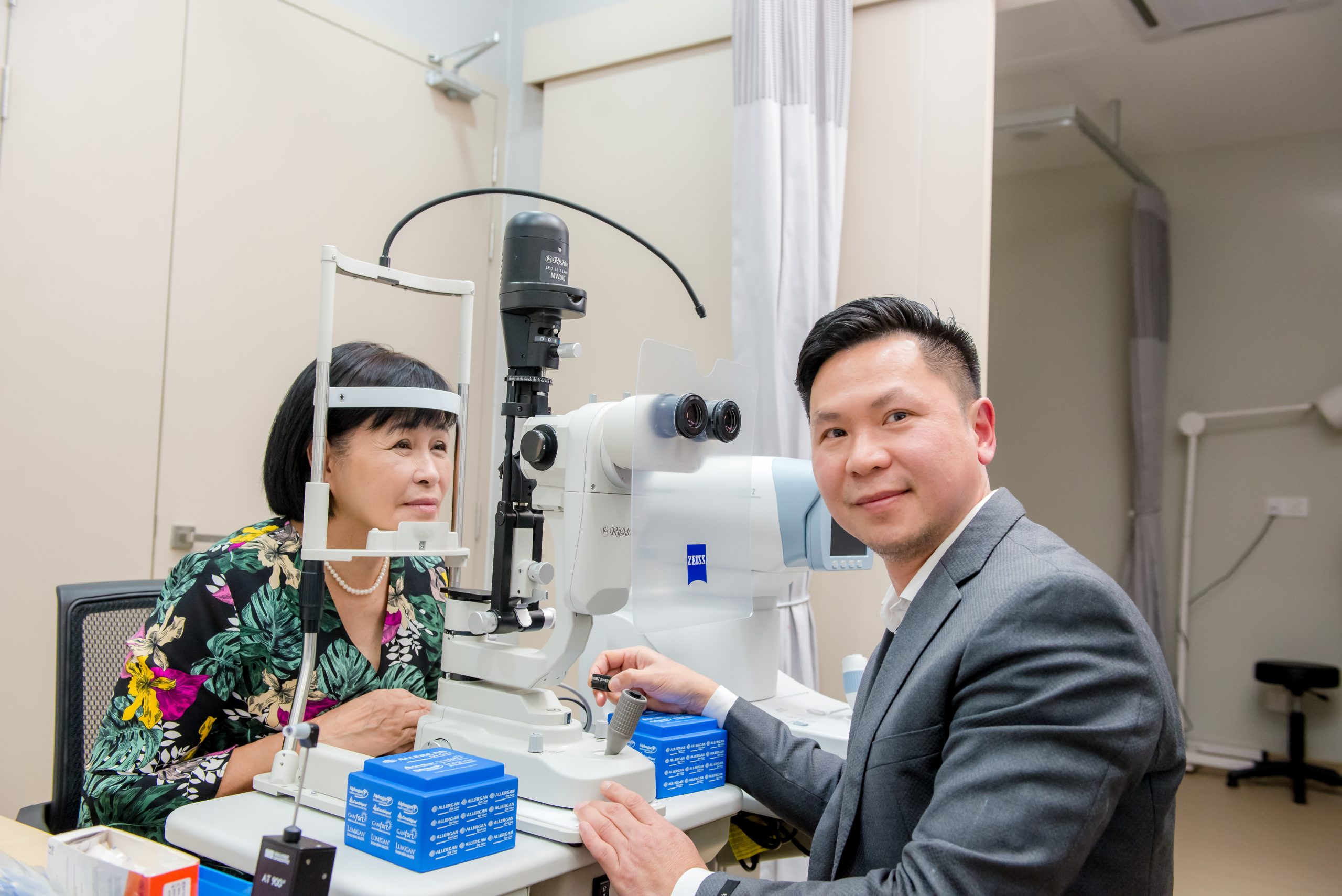
ICL
(Implantable Contact Lens)
Harmoniously Correct Your Vision
ICLs are inserted between your natural lenses and iris to correct refractive errors.
Once implanted, ICLs are completely invisible to you and others. You will only notice an improvement in vision and quality of life.
20 MINUTE SURGERY
1 DAY RECOVERY
REVERSIBLE PROCEDURE
excellent vision quality
safe & comfortable
suitable for dry eyes
The Clear Choice for Better Vision
Before the surgery
You will need to undergo a suitability test to determine if you are a suitable candidate for refractive surgery.
You will need to undergo a suitability test to determine if you are a suitable candidate for refractive surgery.
during surgery
Step 1: Anaesthetic eyedrops are used to numb the eye
Step 2: The laser is used to remove the corneal skin.
Step 3: The laser reshapes the cornea
Step 4: Bandage contact lenses are placed to help in recovery
Post surgery
- Your eyes may be tearing and sensitive to light. (bring sunglasses)
- Your vision takes some time to adjust. You should be able to see clearly within a week
- You will need to come back for a post-surgery consultation.
How the Surgery Works?






ARE YOU ELIGIBLE FOR THE SURGERY?
Am I suitable for ICL?
It is important to understand that not everyone is a suitable candidate for ICL. Some basic requirements include:
- Aged 21-45 years
- Stable vision with no change in refraction error
- High myopia up to -23.0D
- Astigmatism
- Those with thin corneas who are not good candidates for LASIK
WHAT TO EXPECT DURING YOUR SUITABILITY TEST
Step 1: Eye Dilation
Dilation drops relax your eye muscles and allow us to measure your eye prescription & evaluate your retina
Step 2: Suitability Test
- Diagnostic analysis of your cornea
- Measurement of your refractive error (eye power)
- Dry eyes evaluation
- Ocular health evaluation
Step 3: Consultation with Ophthalmologist
If you are considered a good candidate for TransPRK, the surgeon will provide you with information about the surgery procedure, as well as the potential risks and benefits.
It is important to feel comfortable and informed before making a decision, so don’t be afraid to ask any questions you may have.

Frequently Asked Questions
How long would the surgery take?
The ICL procedure will take approximately 2 hours.
We will first use an eye drop solution to dilate your eyes. The process of eye dilation will take one hour.
Only 20 minutes is needed for the surgery of each eye.
Is the ICL surgery painful?
No. You will be administered with a local anesthesia throughout the surgery. Thus, the procedure will be painless.
Who is suitable for ICL?
This is a suitable procedure for adults between the ages of 21 and 45 and near-sighted, with eye conditions such as nearsightedness, farsightedness, astigmatism, and thin corneos.
Will i be able to see after the surgery?
You will be able to gain improved and clearer vision within 24 hours after the surgery.
It will not be possible for you to drive a vehicle immediately after the procedure, mainly due to the sedation that is administered during the surgery.
Thus, it is recommended for you to get a friend or family member lo drive you home after the surgery.
Are ICLs animal-based?
Depending on the manufacturer, some ICLs are animal-based. At TESS, we choose non-animal based ICLs.
I am not suitable for LASIK, can I still go for ICL?
LASIK procedure uses a laser to permanently reshape your cornea. You may not be suitable for LASIK if your cornea is too thin or if you have severe dry eyes.
Your suitability for ICLs are based on different criterias compared to LASIK, so you may still be eligible for ICLs even though LASIK is not an option for you.
Do I need to go for a refraction test with an Optometrist?
ICLs are like glasses. Everybody has their own preference. A refraction test will help determine which combination gives you the sharpest and most comfortable vision.
Our ophthalmologist can recommend you to an Optometrist if needed.

LASIK vs ICL

Patient Testimonials



Book an Appointment
If you are experiencing symptoms of cataracts or have concerns about your vision, please schedule an appointment with our ophthalmology clinic today. Our team is here to help you see clearly and enjoy the best possible vision!








